‘Long-withheld rage’ from COVID shutdowns to blame for pro-Palestine protests: experts
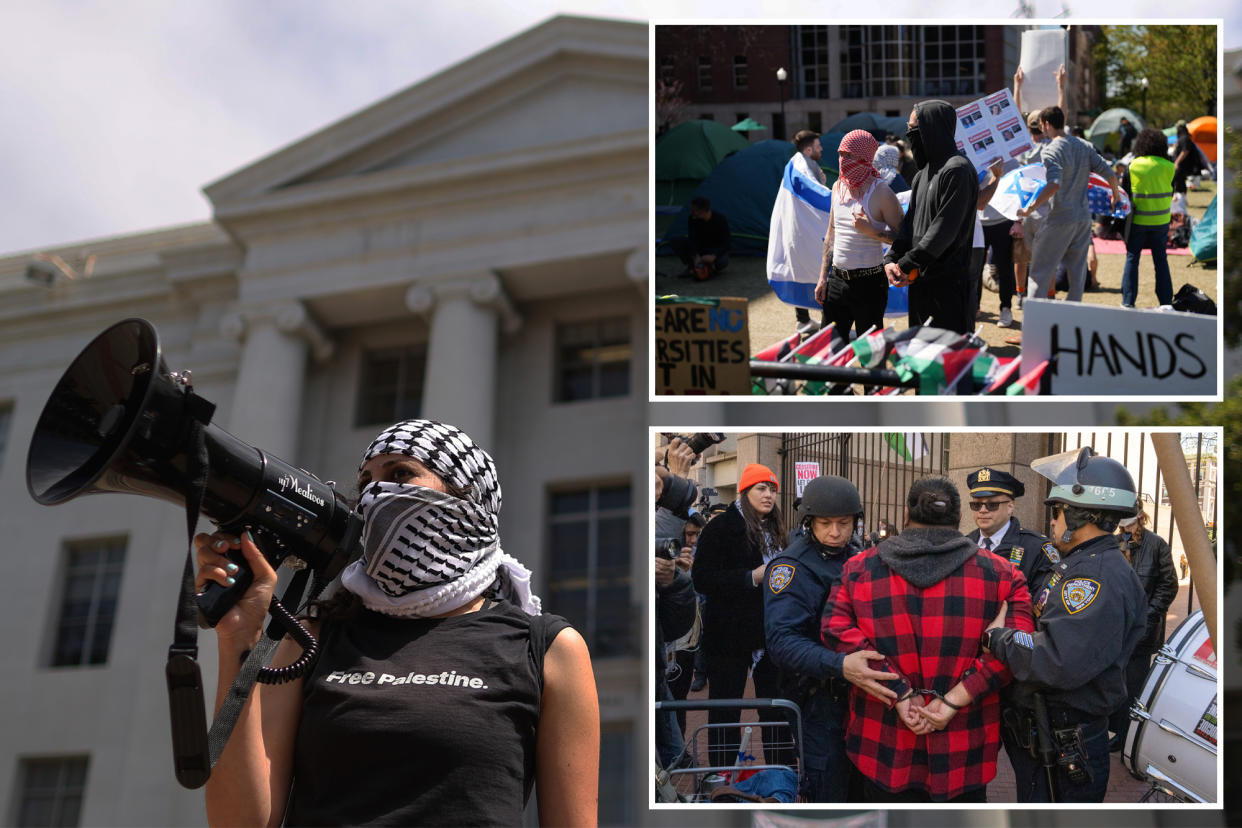
Blame it on Covid.
Campus protesters roiling colleges across the nation are part of a generation shaped by the pandemic, who grew up isolated and angered by school shut-downs and social distancing and are desperate to find a connection, community and a voice, experts told The Post.
The pro-Palestinian cause allows discontented youth to express “long-withheld rage,” said forensic psychiatrist Carole Lieberman. It gives them an “opportunity to identify with the ‘oppressed’ against ‘oppressors.'”
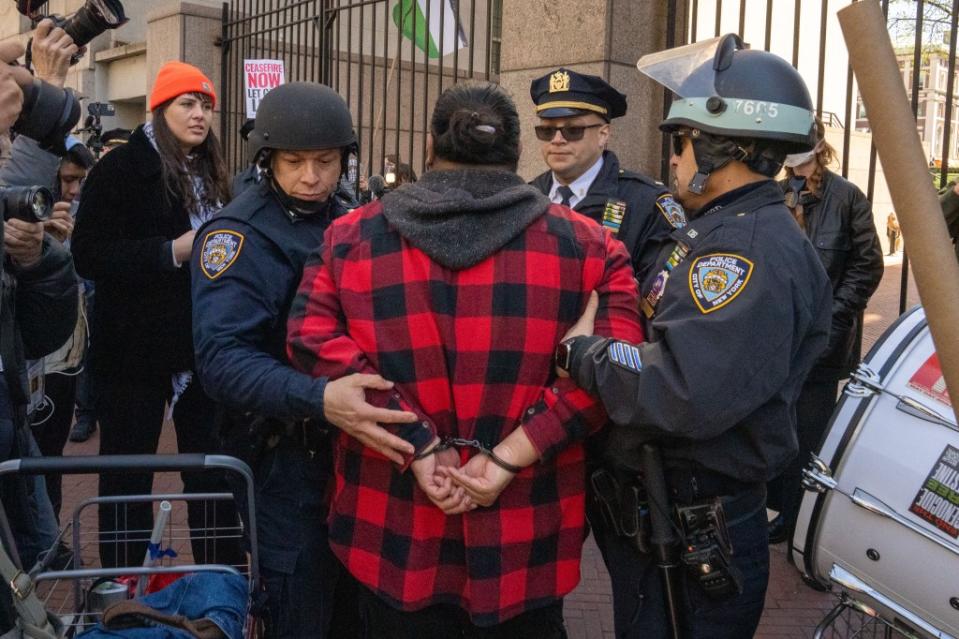
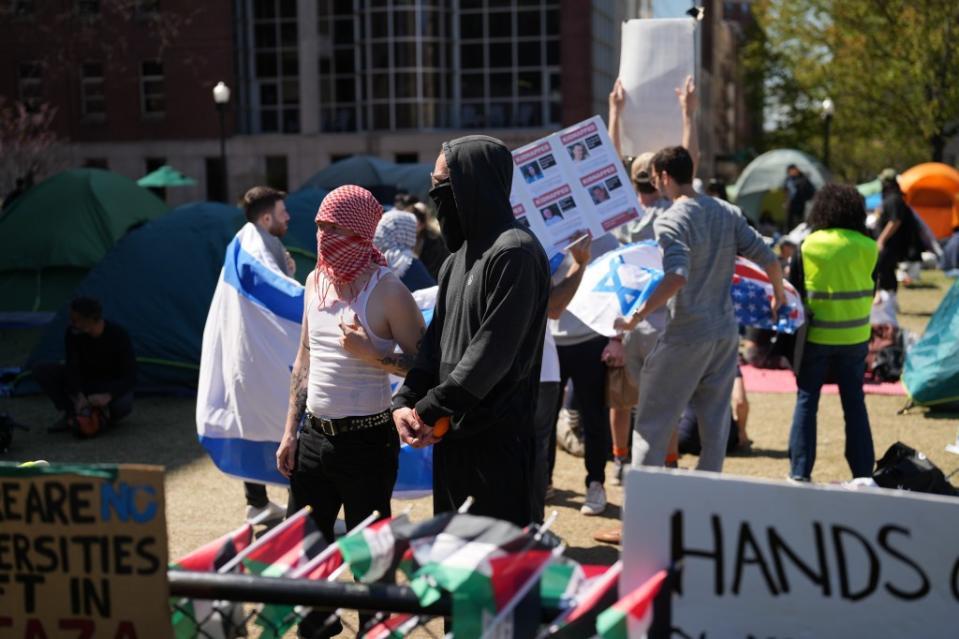
These kids are susceptible to propaganda.
“People who offer an escape from this confusion, by promoting a direction they claim will lead to happiness and purpose, have found a hungry audience,” said Lieberman, a California-based trial expert witness.
Protests and encampments ostensibly “in solidarity” with Palestinians have ramped up in the past week, starting with embattled Columbia University and stretching as far as Texas and Atlanta. Jewish students have reported feeling harassed and unsafe on campus as protesters chant things like, “From the river to the sea, Palestine will be free.”
It appears the young demonstrators don’t have a full understanding of the movement they’ve aligned themselves with, Lieberman said.
“The worst example of ignorance is that the protesters do not know that terrorists want global jihad — not just to destroy Israel,” Lieberman added. They also don’t know what they are saying, when they chant, “From the river to the sea,” the psychiatrist said of the death-to-Israel phrase.
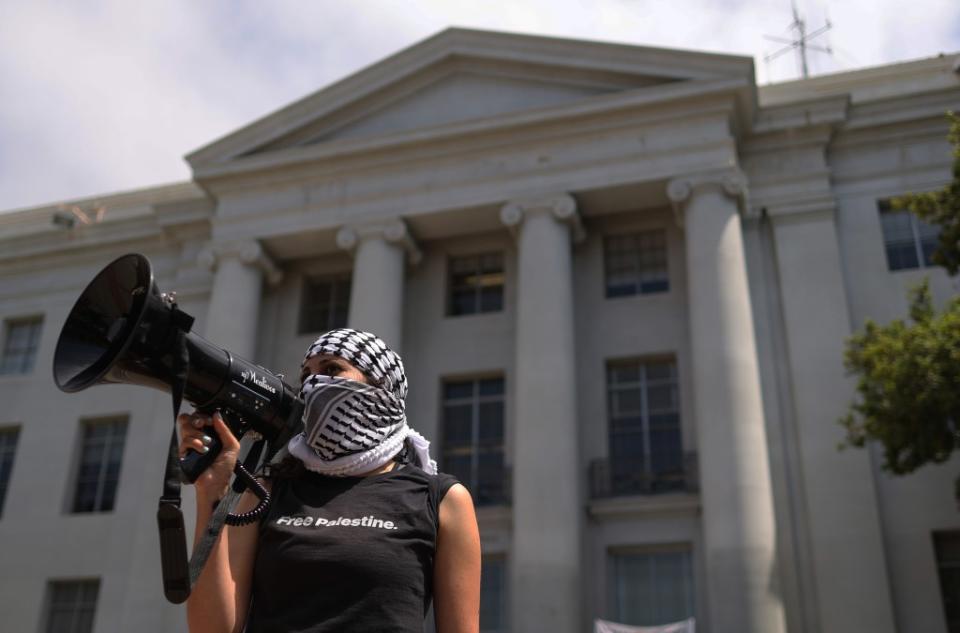
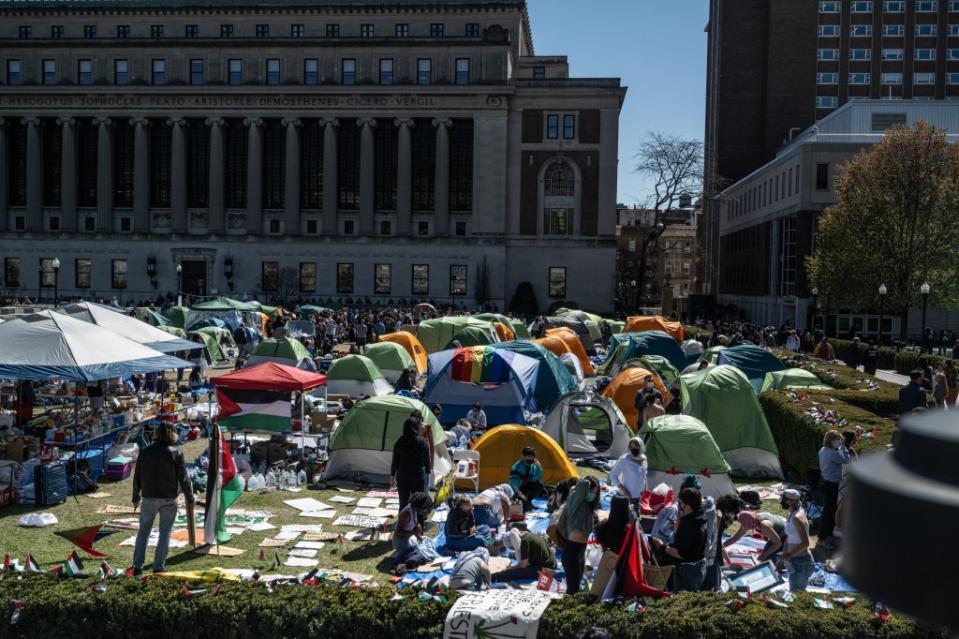
Two Columbia students participating in an anti-Israel rally at NYU went viral when footage was shared by former Mayor Rudy Giuliani late Wednesday. They admitted they had no idea what the protest was about, and wished they were “more educated.”
Another relic of the pandemic has become a common sight at protests and college encampments: masks.
While most of the country has moved on from Covid-19 protections, protesters are clinging to the facial fashion as a sign of fear of the virus, as well a bid to shield their identities, reported online news outlet Semafor, which noted the prevalence of covered faces in the current wave of demonstrations.
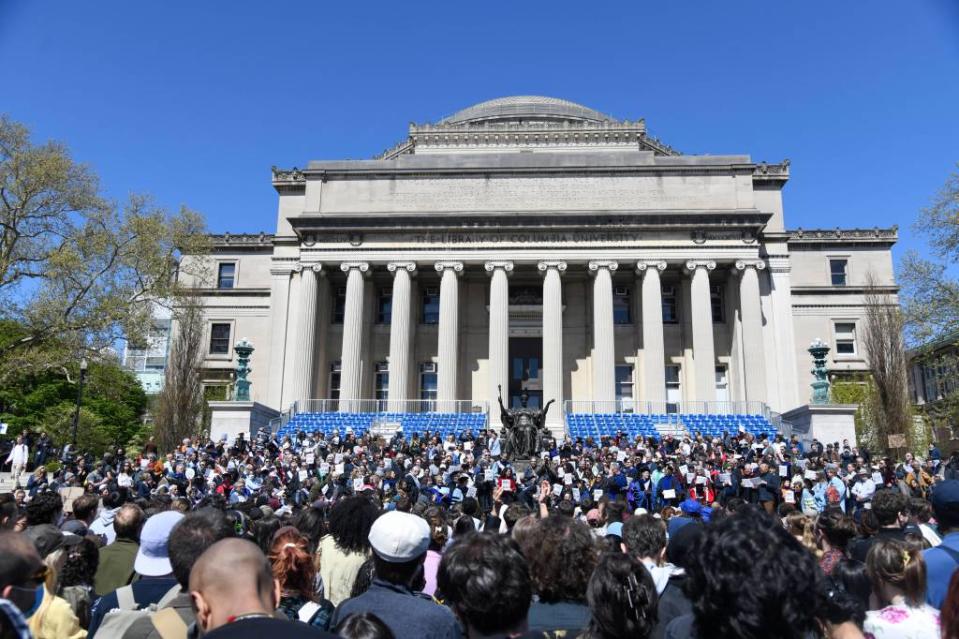
“To us, the optics are communicating that we deny the Biden administration’s narrative about COVID — that it’s no longer a big deal,” Olan Mijana, a spokesman for the March on DNC 2024 coalition, was quoted as saying. “It’s about collective safety, and it’s also about connecting this COVID neglect to the very issues that we’re marching on the DNC for.”
The communal aspect of the demonstrations may also give demonstrators — denied socialization at a key point in their lives — comfort, said psychologist Jennifer Gittleman.
“The protesters may feel angry for the pandemic taking away pivotal, highly anticipated experiences for them — for example socialization in college and missing graduations — and, thus, they are using protesting as a way to release their anger,” she said.
